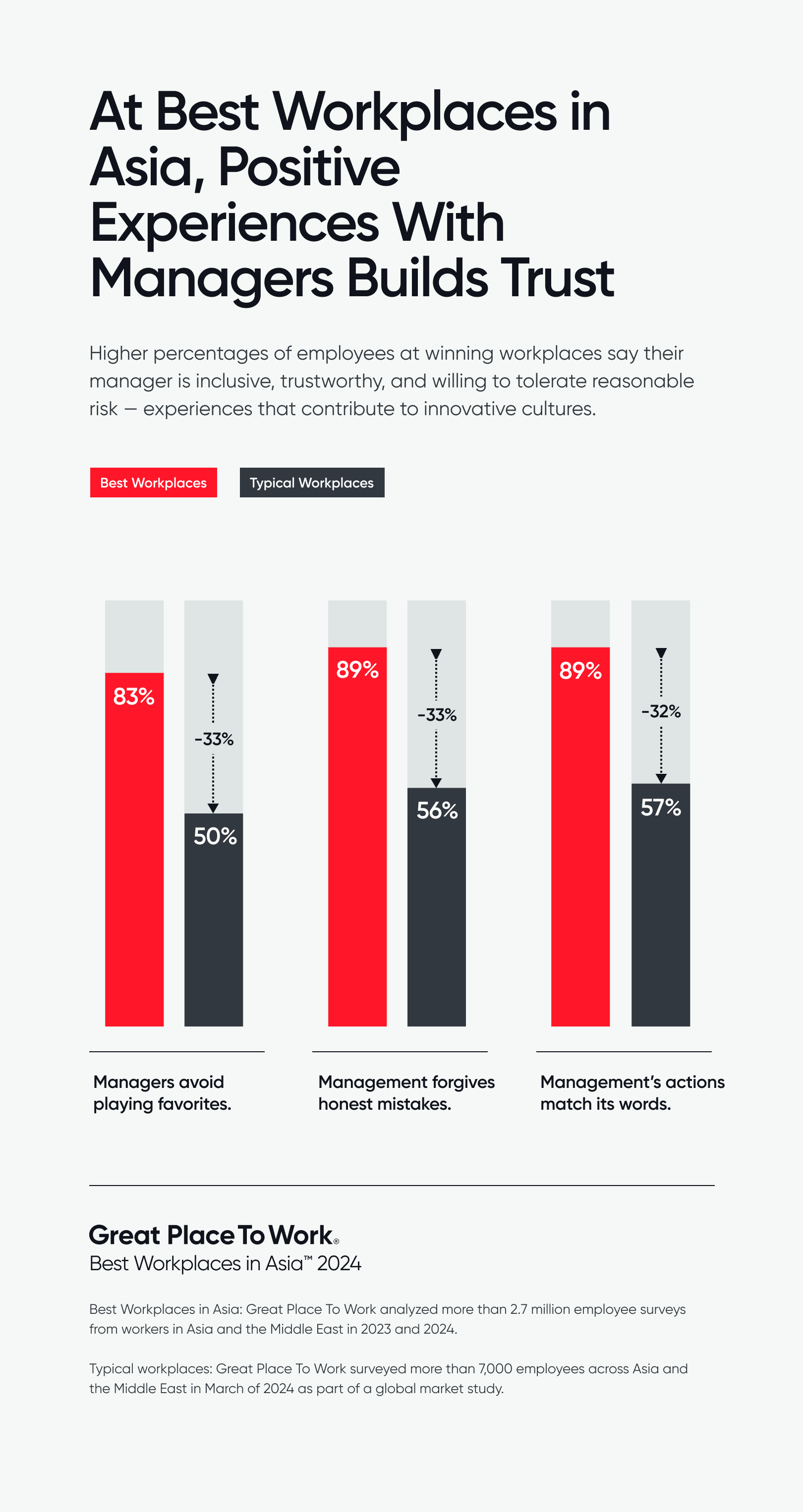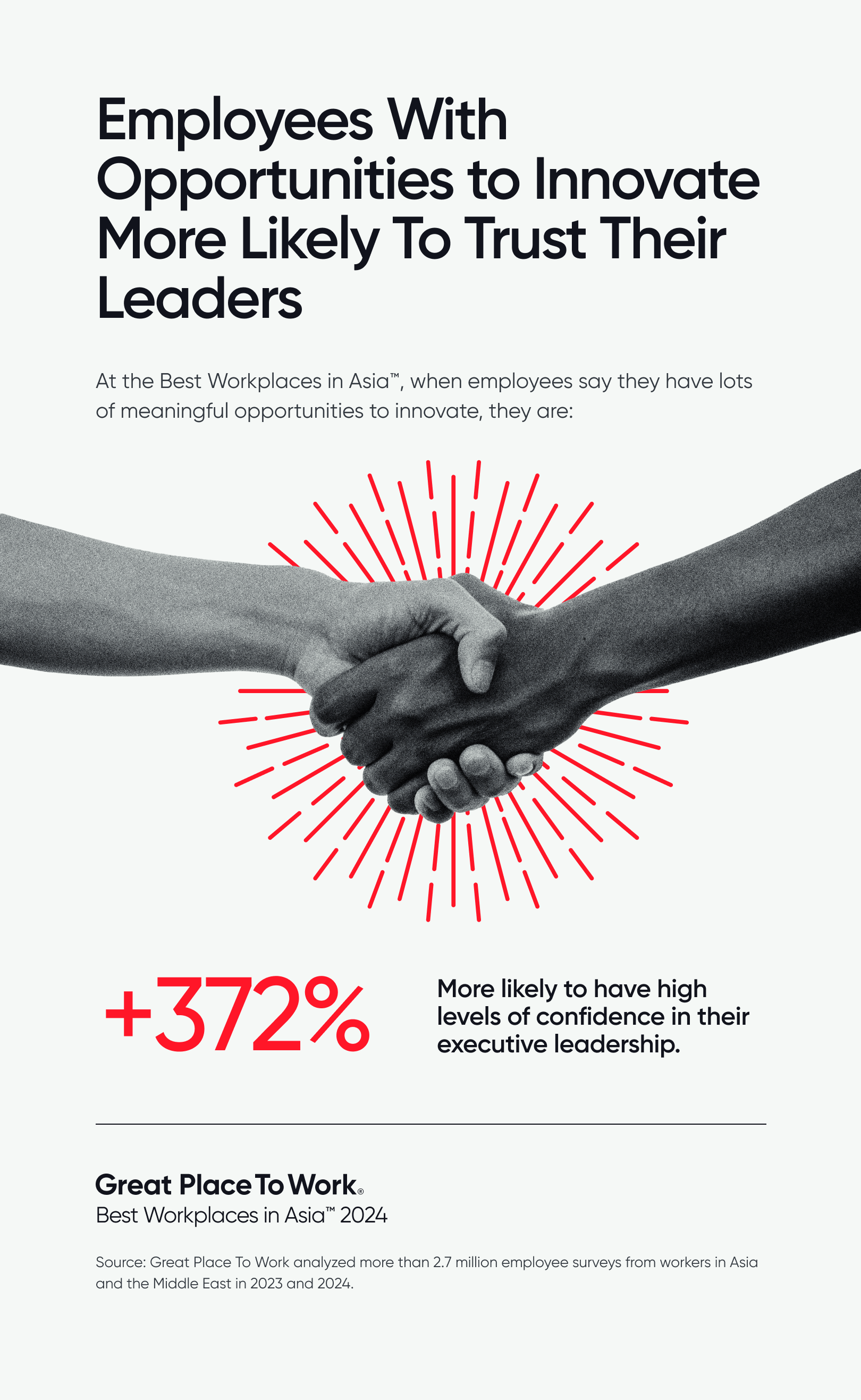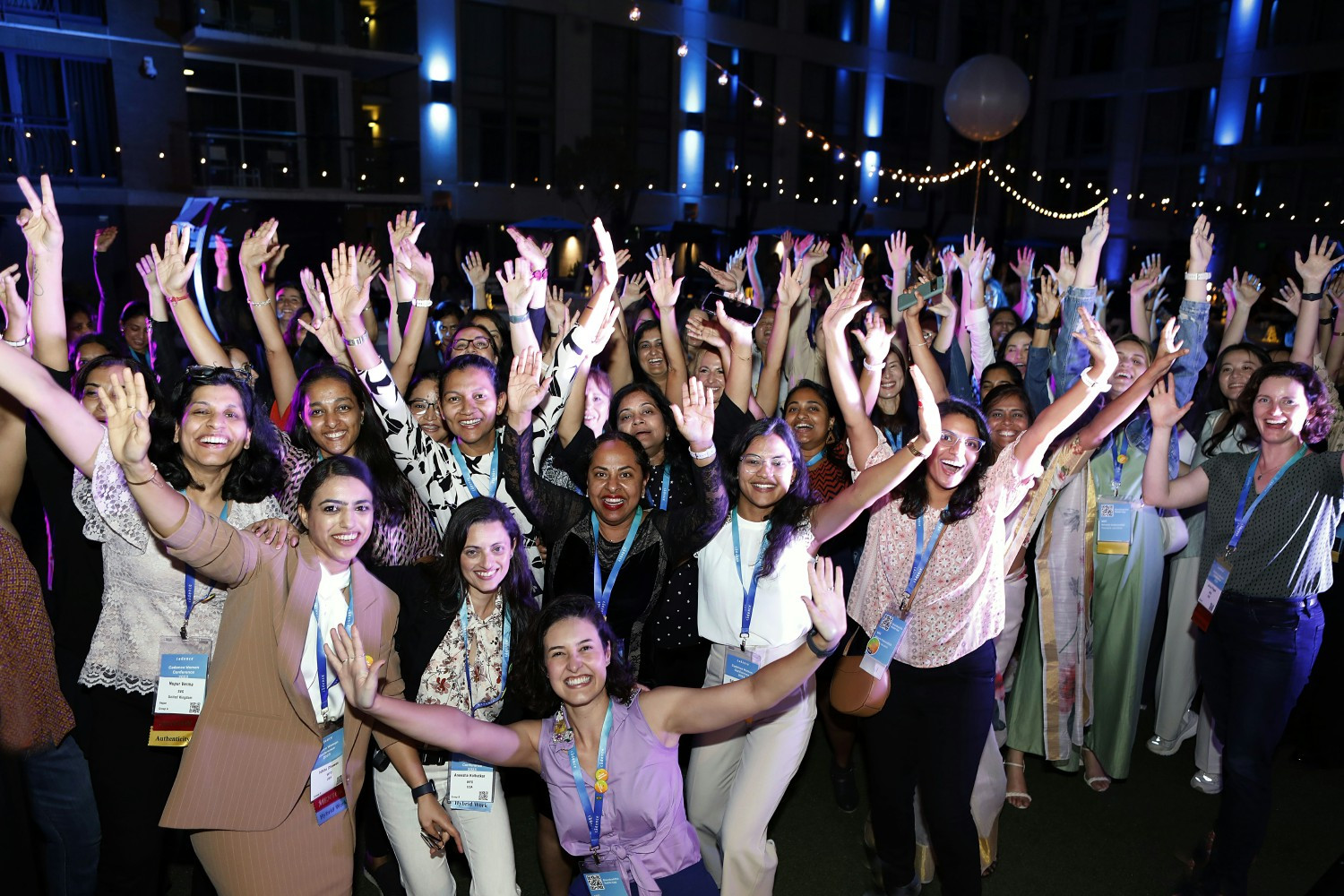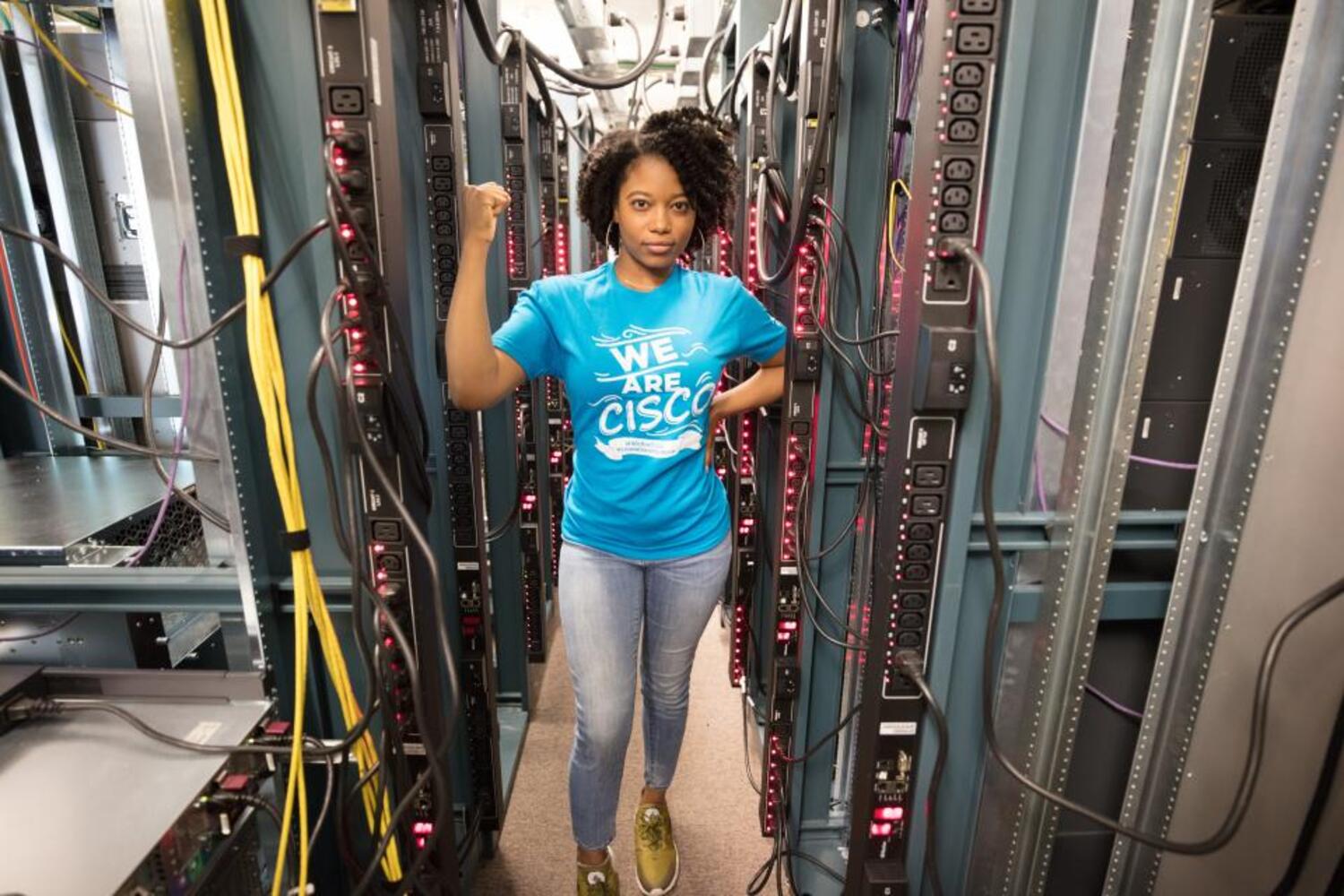AI (Artificial Intelligence), Best Workplaces
Less than half of employees at typical workplaces in Asia and the Middle East say their employer is educating and training them on AI.
Less than half of employees at typical workplaces in Asia say their organization is talking to them about how artificial intelligence (AI) will affect their jobs or investing in the development of new AI skills.
Great Place To Work® surveyed over 7,000 people working in Asia and the Middle East in March of 2024 as part of a global workforce study. Only 49% of respondents said that their organization was training them on the risks and benefits of using AI tools at work, and only 46% said their employer was making meaningful investments in their AI skills.
The International Monetary Fund (IMF) estimates that almost 40% of global employment is exposed to AI disruption, though many countries in Asia and the Middle East are less exposed. More advanced economies, like Singapore and Japan, have more workers who will be affected by the rise of generative AI, according to the IMF study. However, those countries are also more prepared to take advantage of the benefits of AI.
When workers don’t have the skills to use new AI technology, it creates a competitive disadvantage. To avoid falling behind, leaders must invest in both digital infrastructure and human capital. That requires creating a culture where employees are excited to adopt new technology and drive innovation inside their organization.
Without trust, AI adoption slows
Companies that build high levels of trust with employees will move the fastest to adopt new technology, including AI.
Edelman’s 2024 Trust Barometer found that global audiences are nearly twice as likely to say innovation is poorly managed than well managed. That lack of trust indicates that the average company will struggle to get employees to adapt to new technology.
Companies on the Best Workplaces in Asia™ List in 2024 offer a clear roadmap for how to build trust across the organization and prepare your workforce for change. Great Place To Work identified companies for the list by surveying over 2.7 million employees in Asia and the Middle East and measuring levels of trust via its proprietary survey platform.
Employees at companies that made the list are much more likely to have positive experiences, including how much training and development they receive from their employer. At winning companies, 87% of employees say they receive training and development opportunities compared to just 63% at typical workplaces in Asia.
Some of the biggest differences between companies on the list and typical workplaces in Asia center on employees’ experience with managers. At winning companies, 66% more employees say managers avoid playing favorites than at typical workplaces. In addition, 59% more employees at winning companies say management forgives honest mistakes, and 56% more said management’s actions match their words.

How trust accelerates innovation
When more employees are having a positive experience at work, they are also more likely to give extra effort, participate in innovation, and produce stronger business results.
At the Best Workplaces™, 89% of employees report that their company celebrates people who try new ways of doing things, regardless of the outcome. That’s 27 points higher than the 62% of employees who said the same at typical workplaces in Asia.
This experience is correlated with employee productivity and overall agility for the organization. When employees say their company celebrates people who try new things, they are 69% more likely to adapt quickly to change and 18% more likely to give extra effort on the job — both key elements of a culture that can quickly embrace and implement new technology like generative AI.
The data also shows that companies see a benefit from involving employees in brainstorming, hackathons, sprints and other activities that encourage employees to innovate. When employees report having a lot of meaningful opportunities to contribute to innovation, they are 372% more likely to have confidence in their executive team.

As leaders hope to guide their organizations into a new AI-fueled era, having employees who are bought in will be a key differentiator. Companies who can involve more of their employees in the innovation process will face less resistance and will reap more of the benefits of AI technology as it transforms workplaces in Asia and around the world.
How winning companies increase access
Here’s how top companies on this year’s list are ensuring more employees are having a better experience and can contribute their unique talents to drive higher levels of innovation at their company:
1. Make sure you can hear from every employee, regardless of role
When every employees can share fresh ideas, or participate in innovation, companies innovate and adapt more quickly.
DHL Express, the No. 1 multinational company on this year’s list, goes beyond just surveying employees to get deep insights and actionable feedback.
Each year, after survey results are released, colleagues can take part in listening groups and collaborate on action plans to improve the workplace, from sharing ideas to streamline processes to suggesting ideas for new team events.
These action plans are reviewed regularly throughout the year, and leaders make sure to communicate how they are responding to feedback, as well as why they might not act on some suggestions.
2. Train managers to become coaches that help others grow
Great workplaces are training their people leaders to effectively help the people that report to them develop new skills and grow their careers.
At Cadence, the No. 20 multinational company on the list, managers at every level of the organization are expected to support the growth of their teams. Managers are trained to help employees set goals and get guidance on how to maintain regular check-ins on performance and development. Managers also receive training on how to support well-being, lead with empathy, and mitigate unconscious bias.
Cadence also invests in helping employees find mentors in the organization with a program that matches employees across the company to help foster professional networking.
3. Create an inclusive environment where everyone can participate
Great workplaces are focused on bringing more people to the table. When more people can participate and share their ideas, companies innovate faster.
At DHL Express, an all-female workplace in Saudi Arabia provides women with employment opportunities in a country where mixed-gender workplaces are not allowed. Under the banner of DHL4Her, the logistics company promotes visibility for women at work, and provides mentorship opportunities, allowing more employees to share their voice.
Companies like Cisco, No. 3 multinational on the list, are also bringing employees together to co-create plans around AI. They have pulled together a new team of leaders from across the business to develop policies and foster innovation.
Cisco has a strong history of helping employees participate in innovation, whether through programs that engage external audiences like its “Cisco Global Problem Solver Challenge” or internal events like its “Enterprise Networking Hackathon.”
Which employees can easily share new ideas? Which groups in your workforce are most often overlooked? Great Place To Work research shows that when more employees can participate in innovation, companies generate new ideas more quickly and see higher revenue growth.
How to make the list
Think your company deserves special recognition? Get started here to become eligible for next year’s Best Workplaces honors.











